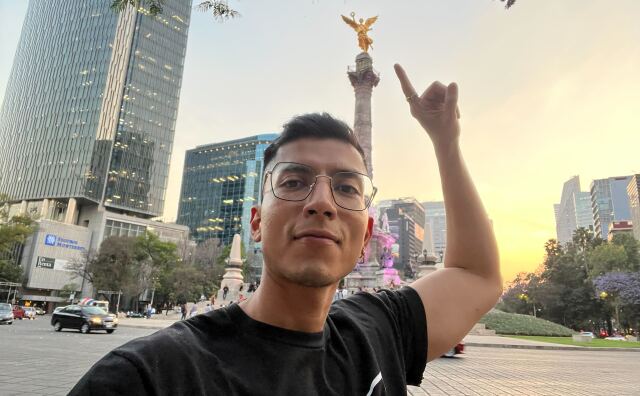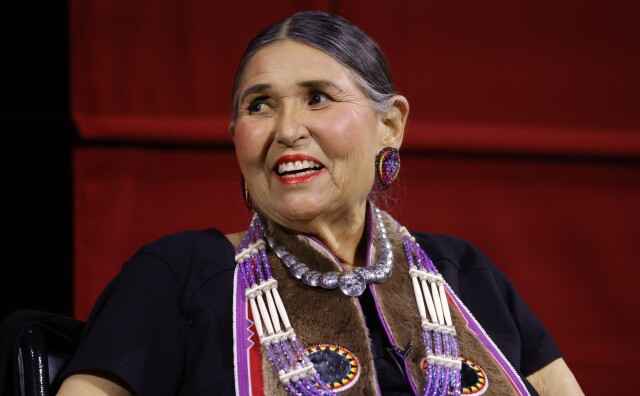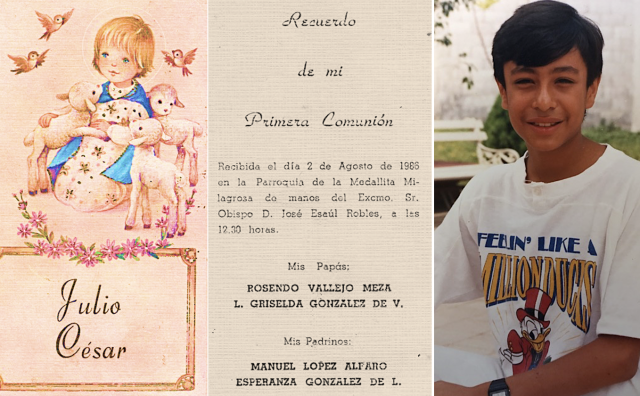Dear Dad: 新年快乐 (Happy New Year) And 我爱你 (I Love You). A Daughter Helps Her Father Recover And Connect

Me: “I love you.”
Dad: [Grunt][Click]
That’s how my dad ends most of our telephone conversations. I say something affectionate and he grunts and hangs up the phone.
I’ve spent most of my life trying to understand my father. He moved to Ohio from Singapore in 1968 — a black sheep in his family. An artist. He moved here alone and has never liked talking about his past or answering any of my questions. Me: So what was it like growing up? Dad: Why do you ask so many questions? [Grunts and then leaves the room].
My freshman year of college, I was a typical 18-year-old. Haughty and arrogant. I thought my life was bigger than the three aisles at Yao Lee’s Oriental supermarket, bigger than my hometown Columbus, Ohio, and bigger than my house where my dad and I fought about the dishes.
It was always about the dishes. But always about so much more.
When I moved out to Southern California for undergrad, I had a very l’m-going-to-get-the-furthest-away-from-my-family, I’m-going-to-change-the-world, and while I’m doing that I’m-going-to-take-one-of-the-hardest-languages-I-can-think-of attitude.
It was 2008. Beijing was hosting the summer Olympics and I was trying to memorize the theme song. I wanted to get close to the side of myself I had never learned through a language my father had never taught me.
The first time I visited Singapore I was fourteen years old. I hopped on a plane with five people who weren’t my father — my aunt, uncle, cousins, sister — to go visit his family, a group of people who had known a side of him I have never known, a young Vincent Soon-Yong Tan who didn’t care about the dishes.
The moment I walked off the plane and saw a sea of faces that looked like mine, I was shocked. I felt like everywhere I looked there was a bit of my mirror and a bit of my father’s mirror looking at me.

In Ohio, it was just us. My mother, who is from Cleveland, Ohio, my father, my sister, and I. We didn’t grow up around Chinese people. I didn’t go to Chinese school. We didn’t celebrate Lunar New Year.
My first trip to Singapore was the first time I met my father’s first cousins, my first cousins, my Great-Aunties, my Great-Uncles. It was the first time I ate jook (a breakfast rice porridge). The first time I received a red envelope. The first time I learned how to say 你吃嗎? (Nǐ chī ma) (Did you eat?/Hello/Good Morning).
It was the first time I heard my father’s nickname “A-tua,” which means “Big one.” It was the first time I met my father’s twin brother “A-soy,” which means “Small one.”
When I came back to the states, the warmth of my cousins and aunties in Singapore didn’t follow me back and the cold telephone conversations between my father and I resumed.
Me: “Love you!”
Dad: [Grunt][Click]
But still, I tried to get close to him — and so I studied.
During my freshman year of college, I decided to take Mandarin Chinese for the first time.
I had unexpectedly signed up to live at the library, spending days and nights practicing Cangjie Chinese characters on a little dry erase board, next to a lamp in a room that was open around the clock. For six months, I listened to audio phrases over and over and over again, repeating and understanding the four tones that I never knew existed. I committed to saying “no” to In N’ Out Burger invitations and "no" to parties.
I was determined to learn Chinese, to pass my tests, and to surprise my dad.
When I flew 3,000 miles back home, I was sitting at the kitchen table with my father when I put my months of studying to the test.
Me: 我爸爸是中國人. 我妈妈是美國人. 我是美國人. (Wǒ bàba shì zhōngguó rén. Wǒ māmā shì měiguó rén. Wǒ shì měiguó rén.) (My father is Chinese. My mother is American. I am American.) [Dad continues eating]
Me: Let’s talk and practice Chinese!
(Without missing a beat)
Dad: I don’t know what you’re saying.
My face drops.
Me: What?
Dad: I don’t speak Mandarin — I speak a dialect. Teochew.
Me (Inside of my head): WHAT THE HELL IS TEOCHEW!?!?

I was 18 when my father first told me what language he understands and grew up speaking. Before I could fully process the hours of my life that I would never get back studying inside of a library, memorizing phrases I would never use — he quickly says (in very Dad fashion):
Dad: I told you you should have learned Spanish.
Me: [Grunts]
Fourteen years have passed since I first learned Chinese. When I walk in a Los Angeles neighborhood during Lunar New Year, I’m wearing red for good luck. And there’s an older man, probably around my father’s age who looks at me and says, “Oh, you look Chinese!” And I say, “新年快乐! I am Chinese.” (xin nian kuai le!) (Happy New Year!)
He smiles. I smile.

My father lives 2,000 miles away from me in Ohio, alone in an apartment building. Right before Lunar New Year, he fell and was on the ground for a few days. He was taken to the hospital and then to a rehabilitation facility, where he’s learning how to walk again and function independently.
I flew out to Ohio on a one-way plane ticket because I’m planning on staying with him, as his 24/7 caretaker until he recovers.
The other day, I visited him at the rehabilitation facility and after he finished his lunch I took out my phone and opened the Duolingo App, which helps you learn languages through questions.
App: 你好! (Ni Hao!) (Hello!)
We both started guessing answers together.
When I said goodbye, he walked me to the door. I told him I love him and gave him a hug. And he hugged me back in a tight squeeze that felt like all of the missing “l love you’s” over the phone were given to me in this one moment.
I always thought there was a barrier between me and my father that stemmed from culture and manifested in language. But now, it turns out he was right all along, we don’t need any words to say “I love you.”
On Tuesday, the last day of Lunar New Year, I walked my father out of the rehabilitation center and brought him home where I will be his short-term 24/7 caretaker. A renewed life for a new chapter — to me that’s when I can really say 新年快乐 (xin nian kuai le!) (Happy New Year!).
Update: July 18
I wrote this essay just hours before my father was discharged from the rehabilitation center, hours before I became the person who cooked breakfast for him every morning, lunch every afternoon, dinner every evening. It was before I became his unofficial nurse. And his exercise coach. Hours before my whole life pivoted.
A lifetime of events have unfolded between then and now. As a way to process what I was experiencing while I was experiencing it, I took out my phone and recorded moments I wanted to remember forever.
Those moments have become an indie, audio film.
In the last episode of Snooze: Help Me Care For My Father (a podcast by LAist Studios, hosted and created by me), you hear what unfolded. And more importantly, what it’s like for a daughter like me to take on one of the biggest responsibilities of my life — becoming the full-time caretaker for my father.
For all of the daughters, fathers, and caretakers — this Snooze episode is dedicated to you. Enjoy.
-
My good friend used advance parole to leave the country and return. Now it's my turn to go back "home."
-
When you grow up in Anaheim close enough to watch Disneyland fireworks every night while your family can’t afford to go, you can’t help but feel like you’re on the outside looking in.
-
She sat down with us in April, nearly 50 years after the night she turned down Marlon Brando's Best Actor Oscar — which is still among the most memorable and contentious in Academy Awards history.
-
Latin America is no stranger to racism and colorism — just turn on a telenovela and see for yourself. And it’s alive and well in our own communities here in the U.S.
-
When you grow up identifying as "half white and half Mexican," the task of choosing what box to check on a government form isn't easy.
-
Growing up as the son of a Filipino immigrant dad and Russian American mom, Mark Moya felt equally attached to both cultures. He still does. Lately, he's been thinking more about their immigrant legacy and how it shaped him, especially after losing his dad earlier this year to COVID-19.










